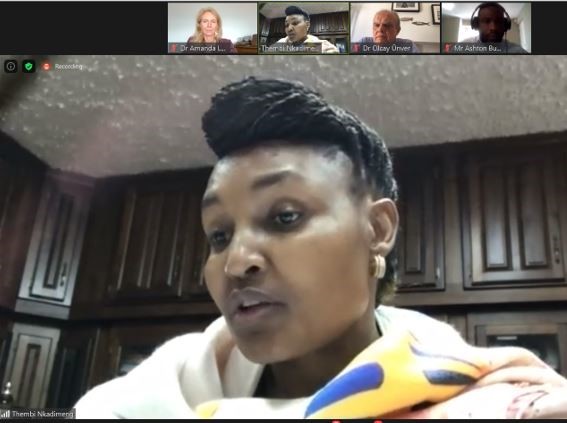Dhesigen Naidoo of the Water Research Commission in South Africa hosts this interactive webinar to mark the 10th anniversary of the UN declaration to recognise the human rights to water and sanitation.

Progress to reach SDG6 on water by 2030 is slow (UN-Water), and the last 10 % of people that do not have safe drinking water, the 29% without water for hygiene and handwashing, and the 50% that don’t have access to safely operated toilets, generally live in very poor and remote neighbourhoods. They are unlikely to have access this decade without a rethink of the approach to providing these services.
Amanda Loeffen, speaking on behalf of Human Right 2 Water (HR2Water), explains that there is simply not enough money globally to build the infrastructure needed by 2030 without the support of the private sector. The World Bank estimates costs of US$114 billion a year for construction alone, and Official Development Assistance hovers around US$13 billion a year – far short of what is needed.
If we look at the HRBA, we can be more innovative and creative about the solutions, and find local solutions, provided by local enterprises and local government, combining in public-private partnerships and blended finance options. The clue is to ensure that these operations are driven by the community, inclusive of all people, and meeting human rights standards.
Other webinar panellists included an opening address from Mr Jurgen Kogl, Chair of the Advisory Committee, speaking on behalf of Minister Lindiwe Sisulu, and presentations from Olcay Unver, Vice Chair of UN-Water, Amanda Loeffen, CEO of HR2Water, Sunita Narain, DG of the Centre for Science and the Environment in India, and Aston Busani, Senior Water Analyst at GreenCape Sector Development Agency and National Lead for the South African Young Water.
The event was closed with parting words from Councillor Thembi Nkadimeng, President of the local government in South Africa, talking about COVID as a painful reminder of the disparities that still linger in our societies, and the investment that needs to be made to create access to water for all. She reminded us that that planting a tree today will not benefit the people of today, but it will provide shade for people in future.

